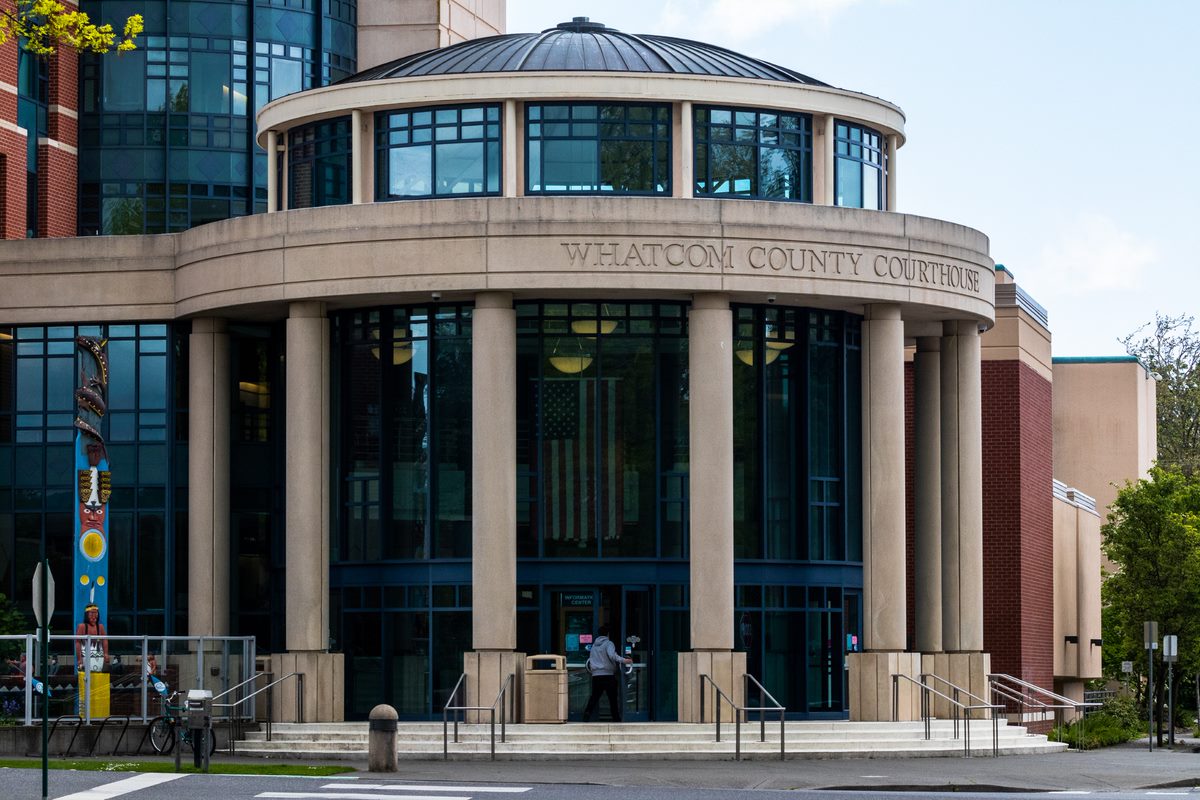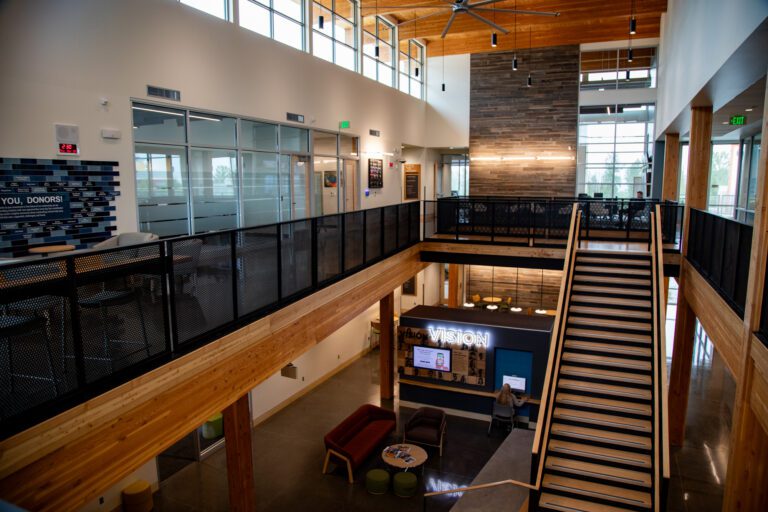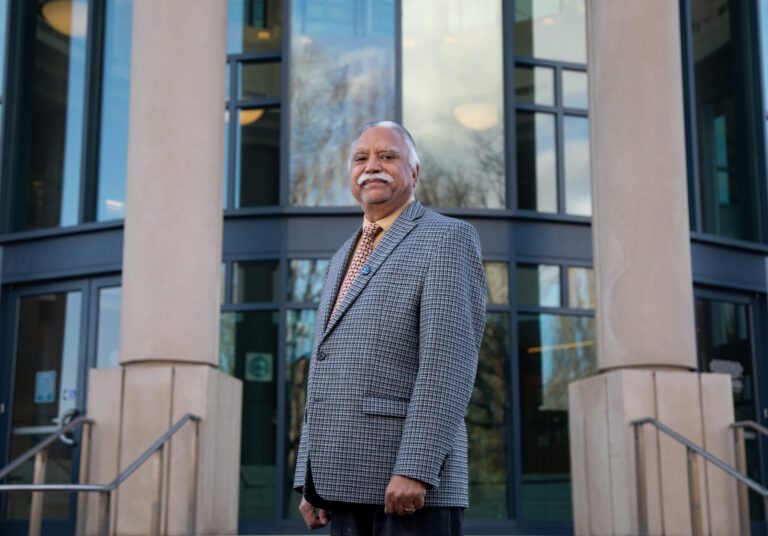Whatcom County’s criminal justice system is in turmoil. Between the COVID-19 pandemic, an aging jail, understaffed police departments, rising crime rates and shifting state legislation, the system is struggling to support the needs of the community.
Residents are calling particular attention to the system this election season, asking candidates in the Nov. 8 general election to address recent crime waves, the ongoing fight against drugs in the community and crumbling jail facilities.
As Whatcom residents seek relief, local attorney Jonathan Rands, a candidate for a District Court judge seat, has made the introduction of a “community court” approach to sentencing a central campaign issue.
A community court is an alternative to traditional courtrooms in that practitioners seek to solve the problems that led to the initial crime.
“It’s a therapeutic court,” Rands said in a recent editorial board meeting with Cascadia Daily News. “We hold it in a non-threatening manner, so the people that come before the court, mostly because of their life circumstances, unfortunate circumstances that brought them there, lack of housing, poverty, lack of ability to read … are treated in a way that connects them to resources.”

The community court approach is designed to connect people charged with misdemeanors, including trespassing charges often levied against homeless individuals, with resources to help them access food, shelter and literacy programs. It calls for less jail time, more community service and a significant increase in local resources for those seeking mental health and addiction treatment and affordable housing.
“These issues are real issues for people, so we solve these issues,” Rands said. “But more importantly, we don’t send them down the hall to talk to a probation officer who’s behind the glass wall that hands him a piece of paper that says ‘Here’s your resources,’ because if you can’t read, that’s not going to do any good.”
The community court system, which has already been implemented in district courts around the state, including Skagit County, has worked time and time again, Rands said.
An analysis of the Red Hook Community Justice Center, a community court in Brooklyn, New York, showed the approach saved taxpayers millions of dollars, reduced the need for jail space and reduced recidivism, according to a study conducted by the Center for Court Innovations.
In the study, taxpayers “realized an estimated savings of $4,756 per defendant … relative to similar cases processed in a traditional misdemeanor court — a total of $15 million.” Additionally, the system reduced the “number of offenders receiving jail sentences by 35 percent.”
In Whatcom County, aging jail facilities are inadequate, and have contributed to rising crime rates, according to the Sheriff’s Office. The community court method could contribute to less use overall, improving the local criminal justice system.
Rands, who earned 42.28% of the vote during August’s primary election, called the model “a centerpiece” for his campaign.
His opponent in the upcoming general election, Gordon Jenkins, received 35.4% of the vote, and also offered support for the system last week, but said it’s only a small piece of the puzzle.

“The community court, what’s been presented as broadly a restorative justice type model court, I think absolutely has a place in our system that we should be utilizing to its fullest extent possible,” Jenkins said in an interview with CDN’s editorial board. “I want to recognize that I think [that model] addresses a relatively small part of the cases that are going to be coming through district court.”
District courts have jurisdiction over both criminal and civil cases, and judges handle misdemeanors that involve traffic and non-traffic offenses and infractions, as well as civil cases regarding personal property, contract disputes and small claims. They can also oversee change-of-name petitions and domestic violence and anti-harassment orders.
Jenkins, who serves as the deputy prosecuting attorney for the county, as well as the drug court prosecutor, noted that many of the charges brought in district court will not be eligible for a community court system, including domestic violence-related charges and DUIs.
“We’re not taking domestic violence or DUIs [through this process],” he said. “They’re not going to be eligible for going through it.”
Jenkins advocated for the introduction of several other therapeutic court models, including a specific substance abuse-oriented treatment court model, a DUI-specific court and a veterans court.
“[Community court] is certainly a model, but we need to look at not just one thing and put all our eggs into one basket,” he said. “We need to look at having as many tools as we possibly can to address things in as many different ways as are conceivable.”
The community court model has been implemented in courtrooms across the nation, as well as closer to home. The Skagit County District Court currently utilizes a community court, launched by District Court Judge Jenifer Howson in 2020.
“We connect the participant to those community resources,” Howson told GoSkagit. “[Participants] never expected to come to court and have anybody listen to them.”
Funding for a community court is available through state funding: counties can opt into an additional 0.1% sales tax to be used for the operation of therapeutic courts under state statutes. Whatcom County has opted in, according to the Washington Court.
With crime rates in the district rising and the county in desperate need for a new jail, both candidates say this approach makes sense in Whatcom, and will help those who need it most.




